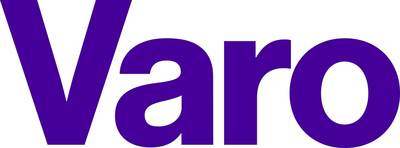Bank data shows financial stress impacting their health, with consumers missing food, safe housing, doctor’s visits, medication, and/or mental healthcare over the past six months.
Authored by Morning Consult and the THRIVE Financial Empowerment Center, this new report offers a window into the views of those struggling to keep their heads above water when balancing their personal finances.
Key Findings
- Trust in Banking Has Plummeted: An overwhelming 74% of respondents believe that the US financial services industry is “rigged against the poor,” creating a feedback loop where good-faith attempts to improve the system in the future might not be trusted.
- Financial Stress Leads to Damaging Mental and Physical Health: 40% of respondents have had financial stress leading to impacted mental health, with 15% not receiving proper mental health care due to cost. This has led to more than 1 in 5 people (21.5%) self-medicating and more than 1 in 7 people (15.6%) considering self-harm due to stress.
- Women are Significantly More Impacted: Of those screened as living paycheck-to-paycheck for this survey, 3 of 5 (59%) identified as women, and of all who identified as financially fragile (could not get
$2,000 in 30 days if needed), 2 of 3 (67%) were also women. - Financial Pressure is Pervasive Across Personal Politics: Democrats, Republicans, and Independents all had more than 30% representation in this survey, and each group cited the daily cost of living (food, transportation, rent, child care) as their greatest financial concern.
- Financial Hardship Crosses Education Lines: With 52% of respondents having less than a College-level education completed (29% have a Bachelor’s and 19% completed Graduate School), the difficulties of living paycheck to paycheck affect the post-graduate class as much as those without a degree.
- Generational Pressure is Real: As fingers are pointed at which age groups are responsible for economic downturns with articles and rhetoric, 38% of Gen Z respondents (Gen Z: Born between 1997-2012) have avoided asking for financial help due to shame and embarrassment.
“Rent is pretty high. Rent is going up. So that can be a struggle sometimes because even though all my bills are paid, sometimes I’m living paycheck-to-paycheck,” said Adriana Cubillo, 25, a Varo customer from
“These findings not only unveil the depth of financial struggles faced by many Americans, but they also underscore the profound link between financial stability and overall well-being,” said
Varo Bank will share additional Wealth Watch Insights reports in the coming months to better understand the difficulties faced by those living paycheck-to-paycheck and will share those responses with the banking community at large.
To obtain a copy of the Wealth Watch Insights report, please visit our website.
Methodology
This survey, identifying financial issues and the knock-on effects caused by lower financial means, was conducted in
About Varo Bank, N.A.
Varo Bank is a new kind of bank ⎼ the first nationally-chartered consumer techbank in the
Media Contact:
[email protected]
![]() View original content to download multimedia:https://www.prnewswire.com/news-releases/varo-bank-reveals-financial-stress-has-negatively-impacted-the-health-of-40-of-paycheck-to-paycheck-consumers-301983936.html
View original content to download multimedia:https://www.prnewswire.com/news-releases/varo-bank-reveals-financial-stress-has-negatively-impacted-the-health-of-40-of-paycheck-to-paycheck-consumers-301983936.html
SOURCE Varo Bank
Credit: Source link




